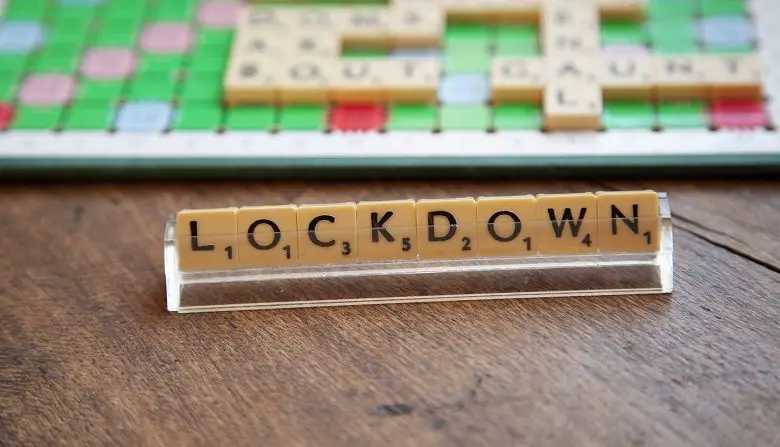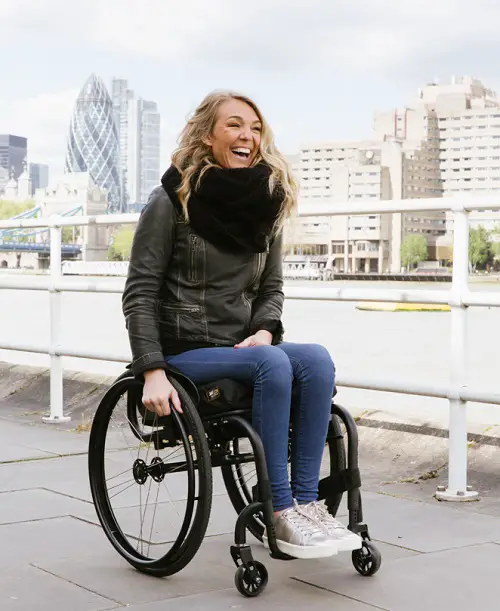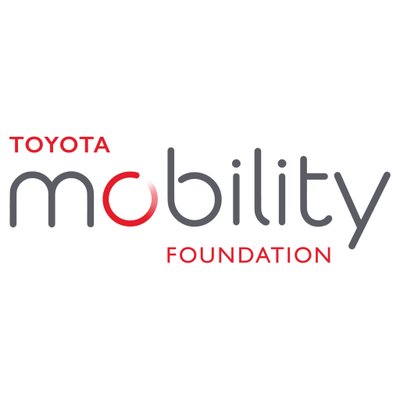
Influential voices in the disability community reflect on Life After Lockdown
An online video called Life After Lockdown has been commissioned by the Mobility Unlimited Challenge (MUC), in which four disability advocates discuss what a post-pandemic world could look like for the disability community.
 Presenter and disability rights campaigner Sophie Morgan, presenter and athlete Ade Adeptian, design pioneer August de los Reyes, and scholar Emily Smith Beitiks discuss how they’ve coped during the lockdown and what positive changes would they like to see in the future.
Presenter and disability rights campaigner Sophie Morgan, presenter and athlete Ade Adeptian, design pioneer August de los Reyes, and scholar Emily Smith Beitiks discuss how they’ve coped during the lockdown and what positive changes would they like to see in the future.
Life After Lockdown conversation
In the Life After Lockdown conversation, Sophie, Ade, and August bring their personal experience of having a disability, whilst Emily is a heavyweight in the field of disability studies. All four individuals are also long-time advocates for the disability community.
It has been widely reported that travel restrictions, self-isolation, and social distancing have forced the non-disabled community to experience restricted mobility and accessibility – something that the disability community face regularly.
Building on those reports, the discussion also reveals other positive and negative ways the pandemic has impacted the disability community and what we must take away from these revelations.
Furthermore, they discuss the importance of universal design, co-creation, and aesthetics when it comes to designing and creating mobility devices; the impact of assistive technology on job opportunities and visibility, and the contributors’ hopes and dreams for the future.
Building back better
At the height of lockdown, at-risk groups were forced to stay away from family and friends, and their interactions with carers and other medical professionals changed.
However, society’s transition online has unlocked the door to previously inaccessible spaces such as museums, art galleries, and music venues. The acceptance of remote working has also confirmed that it is possible to be present and productive at home.
For those transitioning out of lockdown, the gradual reopening of society has also brought about benefits such as the implementation of social distancing measures including the widening of pedestrianised zones and restructuring of consumer-facing businesses, making some spaces more accessible.
Bearing these advantages in mind, Sophie and Emily hope that the understanding, empathy, and accommodations catalysed by the pandemic will encourage non-disabled people to continue;
“to think about disability experiences, learn from disability expertise and incorporate that into the society we rebuild”. In other words, we must “build back better”.
And in order to “build back better”, it is paramount that those with disabilities be involved in the process.

As Ade and Sophie point out, the disability community “are great problem solvers” because the social construction of disability means “we have to think outside the box from the minute we leave the front door, even before then, our lives are about thinking creatively”.
Looking at the way in which the world has benefited from inclusive and universal design only strengthens this belief.
As August reveals that the “original design intent” for devices such as the remote control, email, and telephone was to “help people with mobility differences”.
Throughout history, the disability community has been designing life hacks that are now widely used by the non-disabled community.
It is plain to see that by including members of the disability community in all areas of the design and creation process, especially when it comes to assistive technologies, the end product is guaranteed to be far superior.
Fortunately, the MUC, and others, are shifting the dial putting co-creation at the heart of everything they do.
The Mobility Unlimited Challenge

Woven into the conversation is the Mobility Unlimited Challenge (MUC), a $4 million global challenge supporting radical improvements in the mobility and independence of people with lower-limb paralysis through smarter assistive technology.
The Challenge was launched in 2017 by the Toyota Mobility Foundation (TMF) in partnership with Nesta Challenges.
A year later, ten entries were selected to win $50,000 each to develop their entries. In January 2019, a final five were selected, each receiving a further $500,000.
The winner was supposed to be announced in Tokyo but was postponed because of Covid-19.
However, the finalist will be announced at the end of 2020 and will win $1 million.
The five MUC finalist devices
The five finalist devices hoping to win the MUC Challenge are:
- The Evawalk by Evaluation Devices – a functional electrical stimulation rehabilitation device for those affected by lower-limb paralysis.
- WheelM-i by Italdesign – the first mobility service created for wheelchair users. It’s the cycle share scheme equivalent for wheelchair users.
- Qolo by Team Qolo – a standing device that consists of a lightweight, mobile exoskeleton on wheels which uses passive actuators to allow users to sit or stand.
- Quix by IHMC and MYOLYN – a robotic, powered exoskeleton with motors at the hips, knees and ankles, as well as additional actuators offering someone with lower-limb paralysis fast, stable, and agile upright mobility.
- Phoenix Ai Ultra-light wheelchair by Phoenix Insight – an ultra-lightweight manual wheelchair made from carbon-fiber. Using smart sensors, the chair will configure itself to what the user is doing so it remains in sync with how the user moves.
The winner will be decided by a panel of eleven judges, which includes Sophie Morgan.
Altogether, both Life After Lockdown and the Challenge that inspired the conversation offer a hopeful view of the future. A future where there is greater empathy and compassion and the world is a more inclusive place.
The Life After Lockdown conversation will be available soon on the Mobility Unlimited Challenge’s website, as well as on Facebook, Twitter and Instagram.
By Emma Purcell
More on Disability Horizons…
- Actually I Can: independence and your dreams are possible as a disabled person
- 8 disability living aids and products to help you through lockdown
- Sophie Morgan on being a presenter, artist and disability campaigner
- What is the future of mobility?